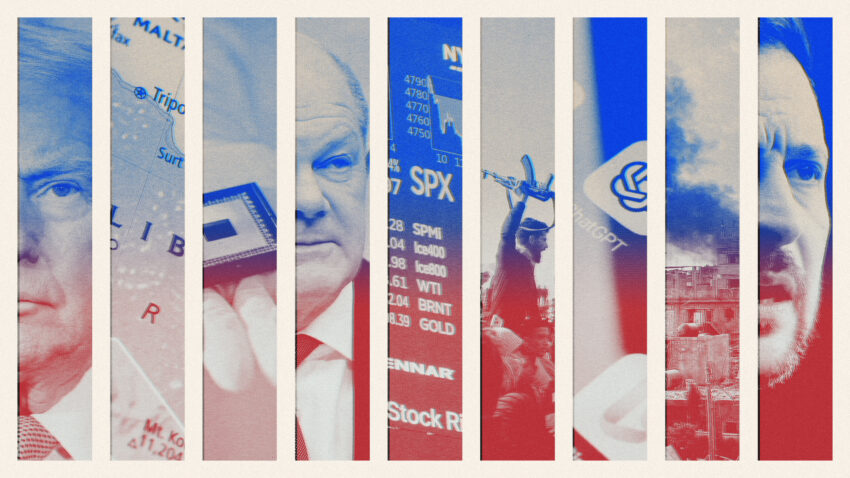Trump has claimed he will end the war between Ukraine and Russia, and help secure a ceasefire between Israel and Hamas to bring an end to the bombardment of Gaza. But his unpredictability and his threats of a trade war could exacerbate existing geopolitical tensions and alienate former allies.
A higher number, 71%, said they were optimistic 2025 would be even better, but this ratio was below pre-pandemic levels. Israel’s bombardment of Gaza and war with Hamas, which escalated into an all-out confrontation with Hezbollah in Lebanon and Iran – as well as the ongoing war in Ukraine – contributed to this “sense of unease”. Political upheaval and the unseating of 80% of incumbents in democracies “further fuelled this uncertainty”.
But there will be bellwether elections on three continents, in Australia, Canada and Germany. The latter in Europe’s biggest economy is the big one to watch. Chancellor Olaf Scholz just lost a historic vote of no confidence following the collapse of his governing coalition in November, which triggered rare early elections. The situation comes at a time of “deep economic crisis and geopolitical uncertainty” for Germany, said The Guardian.
After five decades of brutal, dictatorial rule, the Syrian people “stand at a moment of history – and a moment of opportunity”, UN Secretary-General António Guterres said earlier this month. “That opportunity cannot be missed.”
Sign up for The Week’s Free Newsletters
From our morning news briefing to a weekly Good News Newsletter, get the best of The Week delivered directly to your inbox.
Middle East
This will “remain the world’s hotspot”, said Klassen, with its “confluence of authoritarianism, nationalism, religion and superpower involvement”. The recent fall of the Assad regime in Syria will “probably increase instability” in the region. Libya, in particular, could bear the brunt of the “stunning collapse” of Assad’s regime, said Frederic Wehrey, senior fellow in the Middle East Program at the Carnegie Endowment for International Peace. Assad’s downfall has changed the strategic positions of the two regional powers, Russia and Turkey, and could affect the “fragile equilibrium” between the two in Libya.
America’s “inordinately large share” of the world’s financial markets remains “the mother of all bubbles”, said the Financial Times contributing editor Ruchir Sharma. The fact that “virtually every Wall Street analyst” predicts US stock will keep outperforming the rest of the world suggests that the bubble is “at a very advanced stage”. But at the late stages of a bubble, prices “typically go parabolic”, like US stock prices over the past six months. “All the classic signs of extreme prices, valuations and sentiment suggest the end is near. It’s time to bet against ‘American exceptionalism’.”
America’s “transactional stance” will “encourage troublemaking” by China, Russia, Iran and North Korea – the “quartet of chaos”. It is “unclear whether America would stand up to China in a conflict over Taiwan”.
There’s the coming trade war between the US and countries like China, and possibly with the EU, as well as Donald Trump’s threats of destructive tariffs on Canada and Mexico. The price of Bitcoin has also more than doubled in the past year and “the trouble with bubbles is that when they burst, recessions or depressions often follow”.
His “America First” isolationism will “have friends and foes alike questioning the solidity of America’s alliances”, which could lead to “heightened tensions and even nuclear proliferation”.
From our morning news briefing to a weekly Good News Newsletter, get the best of The Week delivered directly to your inbox.

